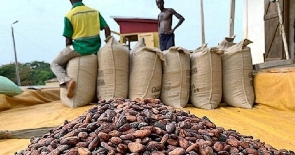By 2050, the world's population may reach 9 billion, and to satisfy this demand, large financial investments and policy changes will be needed to restructure important agricultural production systems. These investments should be concentrated on resource management, sustained productivity growth, and infrastructure development.
Most of the world's population growth will occur in contemporary emerging countries. Southern Africa, whose population growth is among the highest in the world; in 1960, 43 million people were living in the region; by 2050, that number is projected to increase to 350 million, with rural areas seeing the most
growth.
Agriculture employment opportunities will not keep up with the population increase; as a result, there is a need to move employment to the agricultural sector in Southern Africa. More than 70% of the world's population is predicted to reside in cities by 2050 as a result of migration from rural areas, which will have a substantial impact on people's way of life, income levels, and food consumption habits.
African's share of the global urban population has risen from 28% in 1980 to 40% presently and will reach 50% by 2030. Despite its rich resources, Africa is the most underprivileged continent in the world, with very high rates of hunger, low levels of rural income, and relatively poor levels of food security and
agricultural output.
However, 60% of the world's arable land and 9% of the freshwater reserves are in Africa.
These natural resources are crucial for boosting productivity in areas of Africa where small farmers lack access to contemporary technologies and are unable to optimize the process.
These farms are a crucial component in the transformation of the food system in southern Africa, which can significantly help to fulfill the rising demand for food and energy markets globally by sustainably transforming agriculture. In Africa, agriculture is responsible for 60-80% of employment, 15% of exports,
and 40% of GDP.
Thus, accomplishing the following goals of the agricultural economy will require a shift to a more effective and environmentally responsible farming system:
Ensuring steady growth;
Enhancing living conditions and creating jobs for the growing young population;
Addressing food instability and malnutrition
Protection of natural resources.
These objectives cannot be met without considerable financial outlays, the use of contemporary agricultural technologies, and the enhancement of agricultural regulations to favor small landowners.
Opinions of Tuesday, 28 February 2023
Columnist: Joel Savage















